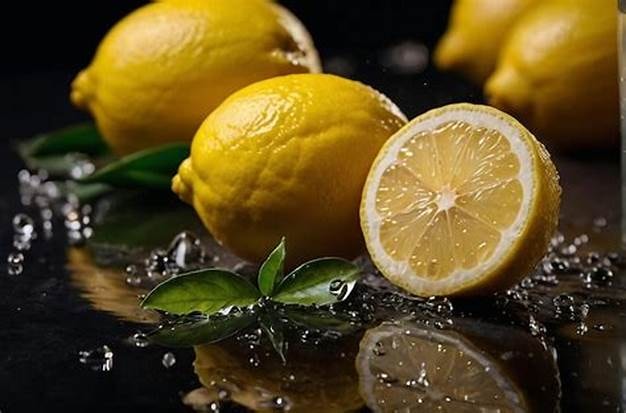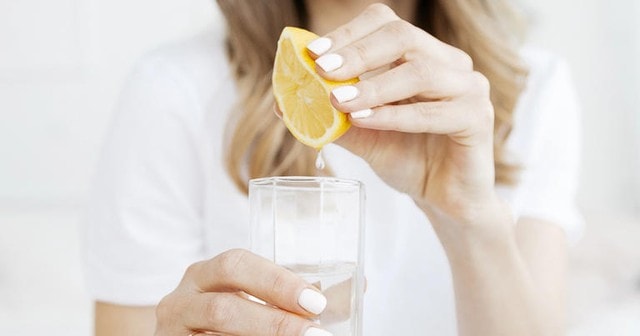A small lemon is a rich source of vitamin C and other beneficial nutrients. That is why we should add lemon to our daily diet.

Lemon is a nutritious citrus fruit, especially high in vitamin C and fiber. It also contains several vitamins, minerals, and antioxidants that provide many health benefits.
The nutritional composition of one large lemon (84g) contains approximately:
The high vitamin C content in lemons (up to 49% of the daily vitamin C requirement) makes them a valuable fruit for boosting the immune system, protecting heart health, preventing cognitive decline and helping to improve iron absorption from the diet.
Studies also show vitamin C's potential to promote collagen formation, aid in the treatment and reduce the risk of several other diseases.
Because of its high vitamin C content, eating lemons is a good way to boost the immune system and protect the body from pathogens.
Vitamin C is a water-soluble vitamin that acts as an antioxidant and plays an important role in the body's immune function.
According to Associate Professor, Dr. Nguyen Thi Lam, former Deputy Director of the National Institute of Nutrition, vitamin C is a factor involved in the immune system because it participates in the production of factors related to the immune system and antibodies.
Among the factors that increase the risk of stroke, there are factors related to diet. Research has found that flavonoids (nutrients found in plants) in citrus fruits can reduce the risk of ischemic stroke in women. People who consume more flavonoids have lower rates of heart failure, ischemic heart disease, and stroke.
Research has also found that flavonoids in lemons and lemon peel extracts may help lower blood pressure. Flavonoids are metabolically active and protect the heart when they interact with gut microbiota. Their activity has been linked to a 15% reduction in blood pressure.
Lemons may increase iron bioavailability (the amount of iron available to the body) and bioaccessibility (the amount of iron that can be absorbed). This may be due to their high vitamin C content.
Combining iron-rich foods with foods rich in vitamin C is a way to increase iron absorption because vitamin C helps increase the body's ability to absorb iron. Therefore, nutritionists recommend that when taking iron tablets or eating iron-rich foods, you should eat foods rich in vitamin C such as citrus fruits.
Drinking lemon water may make you feel full faster. A randomized trial evaluated blood sugar response and appetite after eating bread with water, tea, or lemon water.
Researchers found that lemon juice increased stomach volume by 1.5 times more than water, which correlates with reduced appetite. Lemons are also low in calories and high in fiber, so they may aid weight loss.
Citrus consumption is associated with a lower risk of asthma. One study evaluated the role of nutrition in asthma prevention and found that daily consumption of fruits and vegetables reduced the risk of asthma and wheezing.
Lemon juice stimulates the production of digestive juices like bile, which helps improve digestion. Its acidity also helps break down food more efficiently and relieves indigestion symptoms like bloating and heartburn.
Using citrus juices like lemon can help prevent or reduce signs of aging. The vitamin C in lemons stimulates collagen production, which helps keep skin firm and elastic. Lemons also help brighten the skin and reduce dark spots.
